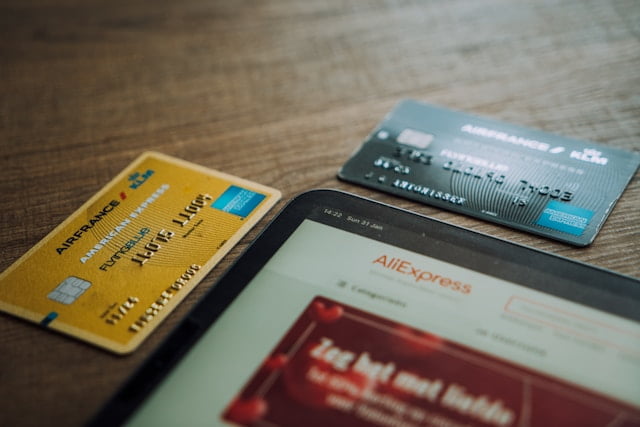High Risk Merchants HighRiskPay.com: A Comprehensive Guide

High Risk Merchants HighRiskPay.com: This article dives into the world of high-risk merchants, explores what HighRiskPay.com offers, and answers common questions about payment processing.
What is a High Risk Merchants Account?
Traditional merchant accounts may not be readily available for all businesses. Businesses considered “high-risk” due to factors like chargebacks, industry type, or credit history may struggle to get approved. This is where high-risk merchant accounts come in.
A high-risk merchant account is a specialized payment processing solution designed for businesses that pose a higher risk to credit card processors. These accounts often come with higher fees and stricter requirements compared to regular merchant accounts. However, they enable high-risk businesses to accept credit and debit card payments from their customers.
Is HighRiskPay.com Legit?
While there is no definitive answer on the legitimacy of any company online, here’s what we can glean from HighRiskPay.com’s website:
- They claim a high approval rate (99%): This can be a positive sign, but it’s important to understand the terms and conditions before applying.
- They emphasize fast approval: Getting approved within 48 hours sounds appealing, but be cautious of rushing into a financial decision.
- Focus on customer satisfaction: This is a positive but subjective statement. Reading customer reviews from credible sources can offer more insight.
Also Reads: How2invest: A Beginner’s Guide to Building Wealth
Is Stax a High-Risk Merchant?
Unfortunately, I cannot definitively say whether Stax is considered a high-risk merchant without more information. Stax itself might not be, but the type of business Stax facilitates might be classified as high-risk by payment processors.
Here are some factors that can contribute to a business being classified as high-risk:
- Chargebacks: Businesses with a high rate of customer disputes or refunds.
- Industry: Certain industries, like travel or adult entertainment, are considered higher risk.
- Credit history: Businesses with poor credit history may be viewed as riskier.
- New or emerging businesses: Businesses without a proven track record might be seen as higher risk.
What Does a Payment Processor Do?
A payment processor acts as a middleman between a business and a customer’s bank. When a customer makes a purchase online or swipes their card at a physical store, the payment processor facilitates the secure transfer of funds from the customer’s bank to the merchant’s account. Payment processors also handle tasks like authorization, fraud prevention, and settlement of funds.
Choosing the Right Path
If you’re a high-risk merchant, HighRiskPay.com might be an option to consider, but it’s crucial to do your research. Carefully examine their fees, terms, and customer reviews before making a decision. It’s also wise to compare quotes from other high-risk merchant account providers to find the best fit for your business.
Digging Deeper: High-Risk Merchants and HighRiskPay.com
Here’s some additional information to help you explore high-risk merchants and HighRiskPay.com further:
High-Risk Merchant Account Considerations:
- Fees: High-risk merchant accounts typically have higher monthly fees, per-transaction fees, and chargeback fees compared to regular accounts. Carefully analyze the fee structure of HighRiskPay.com and compare it with other providers.
- Terms and Conditions: Don’t just skim through the fine print. Understand the terms regarding reserves (where a portion of your sales are held by the processor), early termination clauses, and any limitations on your business activities.
- Customer Reviews: Look for independent reviews of HighRiskPay.com on trusted websites like the Better Business Bureau or Trustpilot. These reviews can offer valuable insights into other merchants’ experiences.
HighRiskPay.com Scrutiny:
- Company Background: While they claim to be established since 1997, a more in-depth search might reveal their Better Business Bureau profile (if they have one) and its history.
- Transparency: Look for clear information on their website about their ownership, processing partners, and any potential risks associated with their services.
Beyond HighRiskPay.com:
- Alternatives: Research other high-risk merchant account providers. Consider factors like industry specialization, customer support, and reputation when comparing options.
- Consult a Payment Processing Specialist: A professional can help you navigate the complexities of high-risk merchant accounts, assess your business needs, and recommend suitable solutions.
Additional Resources:
- Payment Card Industry Data Security Standard (PCI DSS): https://www.pcisecuritystandards.org/ – This standard outlines security requirements for all businesses that accept card payments. Understanding these requirements is crucial for any high-risk merchant.
- The Merchant Account Comparison Tool: https://www.nerdwallet.com/best/small-business/credit-card-processing-companies – This tool by NerdWallet allows you to compare features and pricing from various merchant account providers.
Remember, choosing the right high-risk merchant account provider requires a thorough evaluation. Don’t hesitate to ask questions and seek professional guidance if needed.





